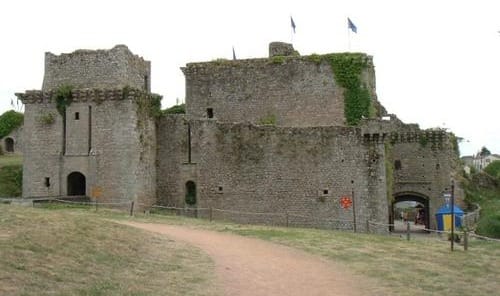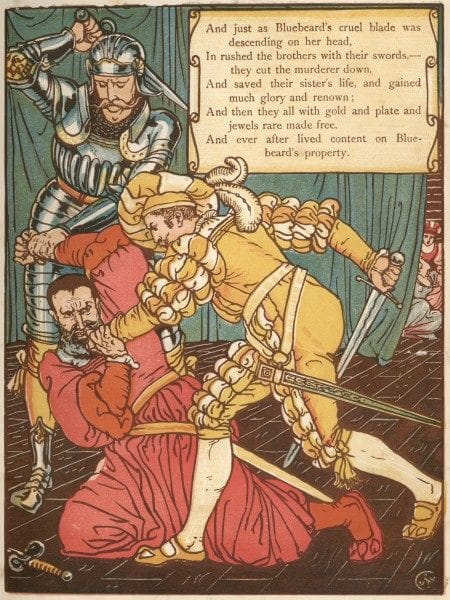Gilles de Rais and Bluebeard

He was a leader in the French army and probably he fought alongside Joan of Arc. What did he do later that was so bad and was it true? He confessed, of course, as everyone did, and he was executed in 1440.
The Black Baron: The Strange Life of Gilles de Rais: that's the title of a book from 1930, recently synopsized this way:
Gilles de Rais, a marshal of France and a lord of the Breton marches. A noted soldier, he was at Orleans with Joan of Arc. He was a liberal patron of music, literature, and the arts. After his retirement, rumors spread of satanic and vicious doings in his castle. He was tried in an ecclesiastical court, and he confessed to kidnapping more than 100 children, mostly boys, and to murdering them after maltreating them. He was handed over by the Church to the civil authorities and was executed. There is no reason to doubt his confession. He has been supposed, probably wrongly, to be the original of Bluebeard.
And this is one of the more restrained descriptions! But is any of it true? Every age projects its own fears on to such stories.
Georges Bataille added, in 1959, “the abominable and execrable sin of sodomy, in various fashions and with unheard-of perversions that cannot presently be expounded upon by reason of their horror, but that will be disclosed in Latin at the appropriate time and place.”
Most historians over the years have said Yes, it is true, as they wallowed in the Sadean excesses. The more sober, like Umberto Eco, attribute his crimes to the trauma of his war experiences. But the story has all the familiar trappings of the witch hunts of the time, or of today for that matter. The extermination of the Cathars was only the preceding century and, like many others including Galileo, he will have confessed rather than endure torture. We also cannot trust the eyewitness testimonies - no one can stop a witch hunt once it's underway.

Above is his castle today, the Château Tiffauges, aka Château de Barbe-bleue (Bluebeard's Castle), in the Vendée.
Was Gilles de Rais a possible inspiration for Bluebeard, one of the great fairy tales in Charles Perrault's Les Contes de ma Mère l'Oye (Tales of Mother Goose), first published in 1697? It's hard to think of a fairy tale that has been adapted more often by other people...

